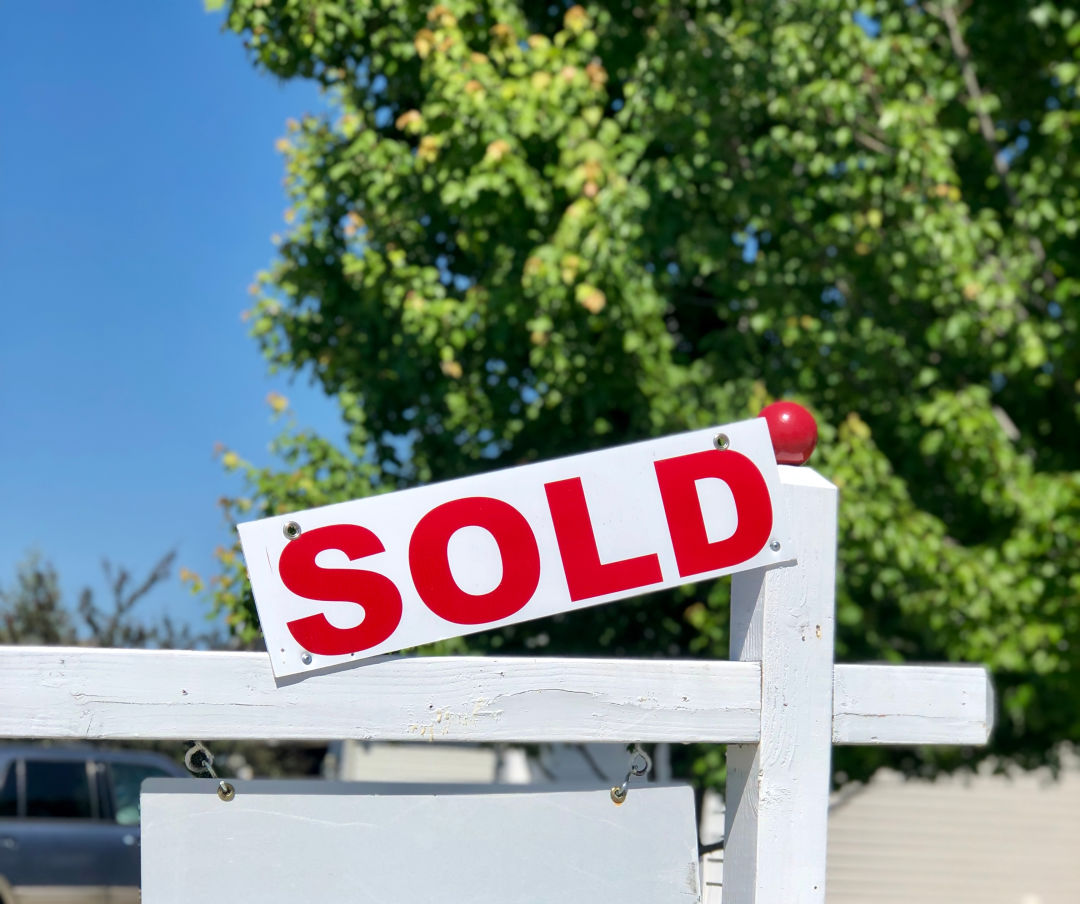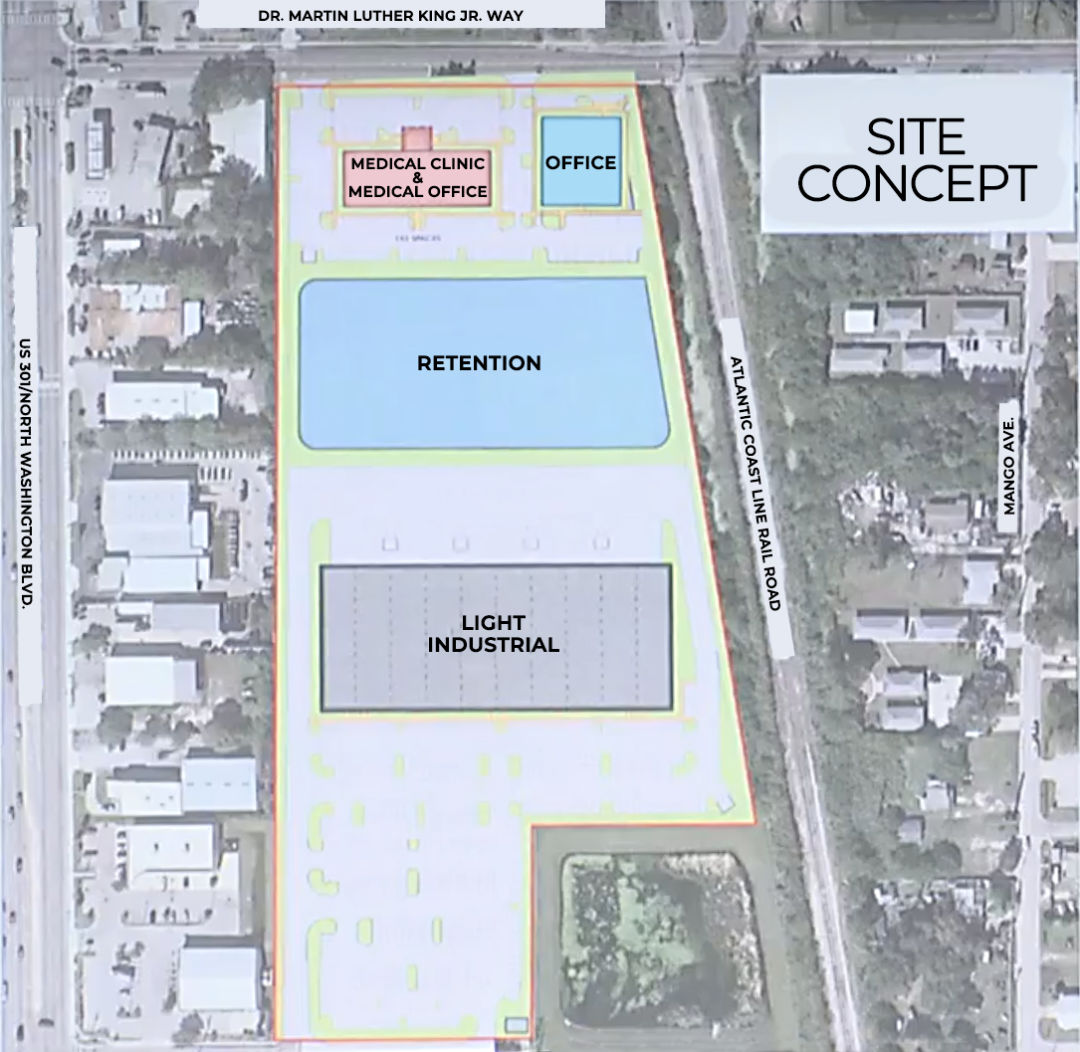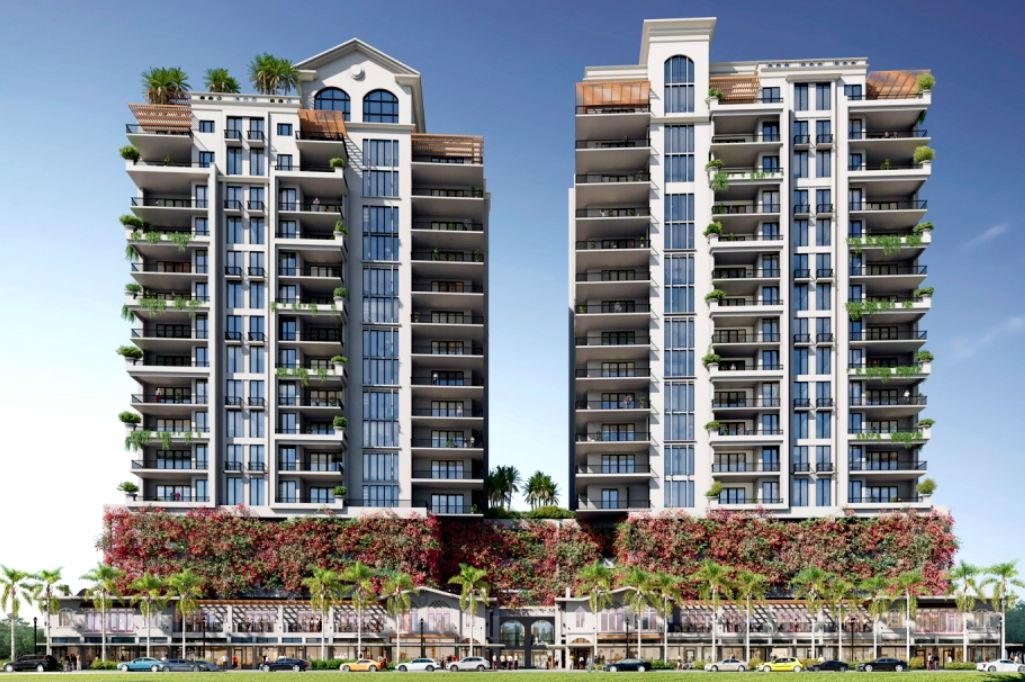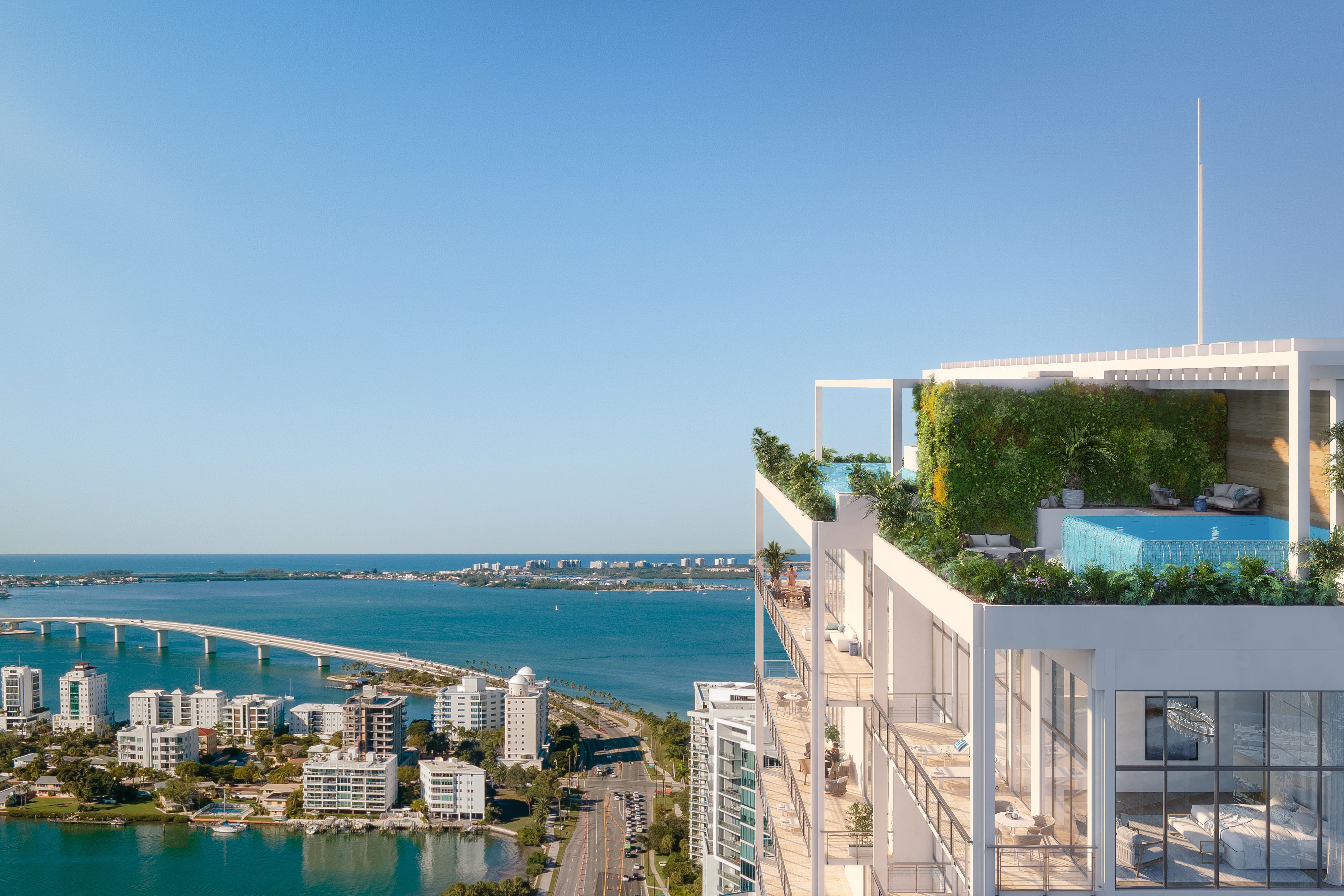City Approves Plan to Clean Up, Redevelop Environmentally Damaged Newtown Property

City commissioners voted to sell nearly 13.2 acres of city-owned land in north Sarasota yesterday.
Despite Sarasota's development boom, nearly 13.2 acres of city-owned land known as Marian Anderson Place in north Sarasota have sat vacant for almost 80 years. That may soon change.
On Monday, the Sarasota City Commission voted unanimously to enter a purchase and sale agreement of the site, which is located at 2046 Dr. Martin Luther King, Jr. Way, just east of U.S. 301, for $50,000. The city acquired Marian Anderson Place in 1944 and used it as an illegal landfill until the 1960s. (Questions during the meeting revealed it was unclear whether it was gifted to the city, or purchased.) When the city explored developing the land in years past, environmental assessments revealed high levels of arsenic, pesticides, lead and other contaminants in the soil, according to staff reports.

The site is located just east of U.S. 301 on Dr. Martin Luther King, Jr. Way, in Newtown.
Image: City of Sarasota
The buyer, Newtown Gateway LLC, is led by Miami's Woodwater Investments. Woodwater chief executive officer Barron Channer, who has been in talks with the commission since 2020 about the site, said during his presentation that plans for the parcel include building a health care facility that can "serve a variety of incomes," offices and a light industrial warehouse to "produce trainable jobs that generate livable wages."

A draft of the proposal presented at yesterday's meeting.
Although the site's assessed value is just over $1 million, the $50,000 price tag takes into account the costs of environmental assessment and remediation to be paid by the buyer, which Channer estimates will cost roughly $4.5 million. He estimated that the building portion of the project will cost an additional $32 million and will be completed in phases, one building at a time. The closing is postponed until a 30-day period following the Florida Department of Environmental Protection's approval of the buyer's remedial action plan for the site is complete.
Local attorney E. Keith DuBose sat with Channer during his presentation and spoke about onboarding his nephew, Ernest DuBose, chief executive officer of the local builder DuCon Construction, to spearhead the building.
In addition to addressing the environmental issues at the site, the city will also make comprehensive plan and zoning amendments to accommodate some facets of the project. An 80-foot-by-90-foot parcel in the southeast corner of the site will be carved out and retained by the city to accommodate an existing sewage lift station.
Although use of the landfill was discontinued in the 1960s, debris is still present at depths of up to 12 feet, and the site's soil and groundwater contain levels of heavy metals and other organic compounds. Approximately 17 different studies and plans have revealed the environmental issues at the location, and the city has been working for more than two decades to redevelop the brownfield into a community asset.
Plans for a Walmart failed in 2006 and 2007 amid a debate about raising the local minimum wage, and a previous invitation to negotiate with the city went unanswered during the Great Recession. In 2018, the city and Texas' UrbanAmerica negotiated a potential sale that aimed to turn the site into a light industrial park, retail hub and vocational training center.
A sole public speaker at the meeting, Martin Hyde, questioned the sale, highlighting a lack of evidence that the buyer's team had the funds or experience to see through a project of this scale.
City Attorney Robert Fournier and City Manager Marlon Brown said they both felt confident the agreement sufficiently protected the city from any potential fallout. "If they don’t perform, it comes back to the city," Brown said.
Channer said his team would target local hires to build. He also proposed using the process to introduce a program that would expose young people to the commercial real estate industry, to learn "they can also be the change," he said.
The project may take up to five years. The presentation suggested it would take roughly a year to complete the environmental studies and soil remediation and secure the entitlements from the city needed to break ground.
"All you have to lose is time," DuBose said. "But that time has already been lost. And unless people like us come to this commission with a plan, it's going to sit there. I can't promise success, but I can promise we will, with great intention, improve a community in which we live and care about."
“We can't profit unless we live up to our word,” Channer said.



